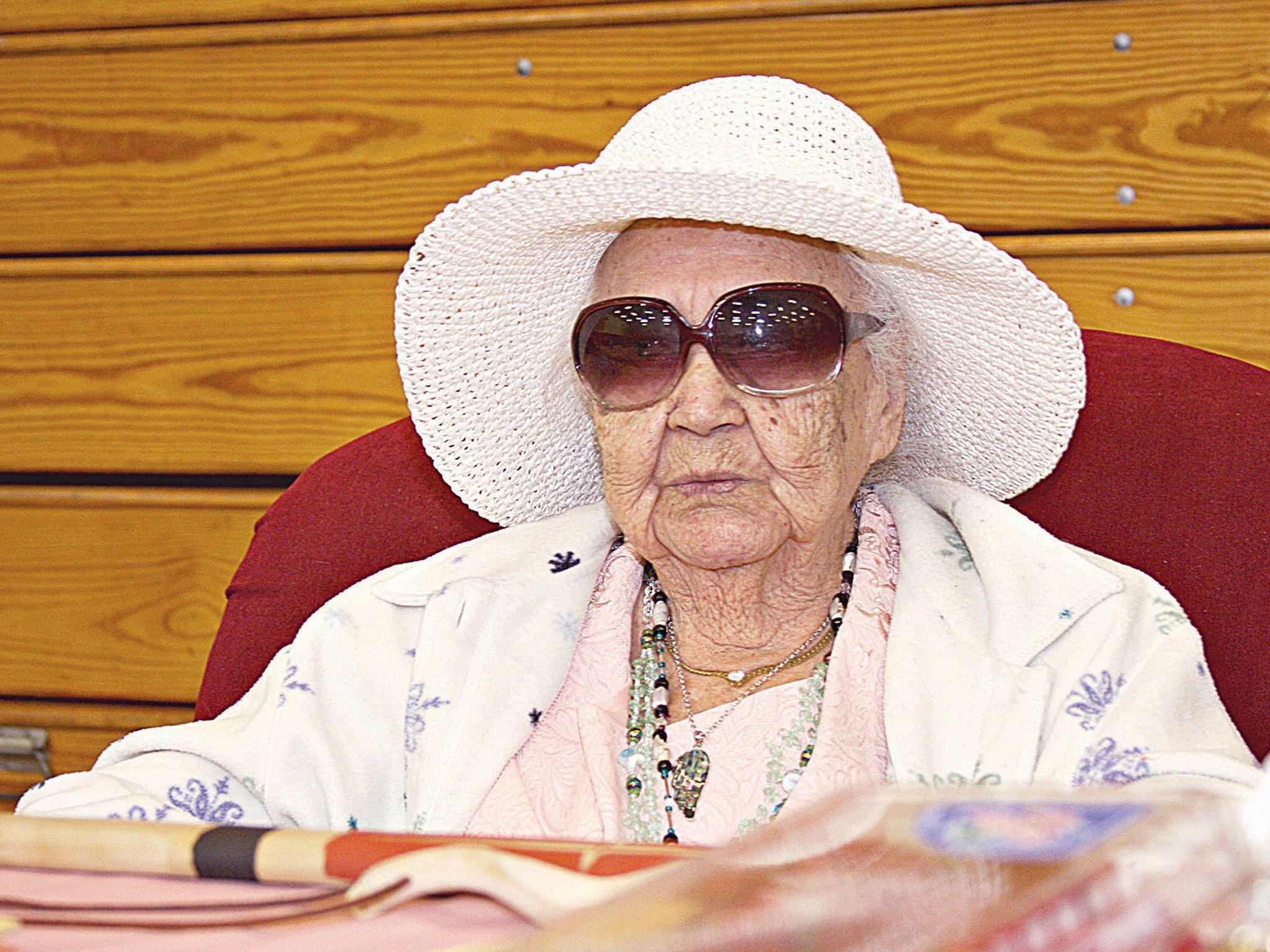Last known native speaker of tribal Klallam language Hazel Sampson dies aged 103
US government, once active in its attempts to eliminate many Native American dialects, recently made an effort to rescue the language

Your support helps us to tell the story
From reproductive rights to climate change to Big Tech, The Independent is on the ground when the story is developing. Whether it's investigating the financials of Elon Musk's pro-Trump PAC or producing our latest documentary, 'The A Word', which shines a light on the American women fighting for reproductive rights, we know how important it is to parse out the facts from the messaging.
At such a critical moment in US history, we need reporters on the ground. Your donation allows us to keep sending journalists to speak to both sides of the story.
The Independent is trusted by Americans across the entire political spectrum. And unlike many other quality news outlets, we choose not to lock Americans out of our reporting and analysis with paywalls. We believe quality journalism should be available to everyone, paid for by those who can afford it.
Your support makes all the difference.At 103, Hazel Sampson was not only the oldest member of the Native American Klallam tribes of the Pacific North-west, but also the last known native speaker of the Klallam language. Ms Sampson, who died at a hospital in Port Angeles, Washington state, on Tuesday, was taught the Klallam tongue by her parents, and learnt English only later as a second language.
The US government, once active in its attempts to eliminate many Native American dialects, more recently made a concerted effort to rescue Klallam from extinction. The language comes from the Salish family of Native American languages, which are spoken in the US Pacific North-west and in neighbouring south-west Canada. It is spoken by four of the region’s tribes: the Beecher Bay Klallam in Canada and, in the US, the Jamestown S’Klallam, the Port Gamble S’Klallam and the Lower Elwha Klallam, the group to which Ms Sampson belonged.
The three US Klallam tribes originate from Washington state’s Olympic Peninsula, the most north-western point of the contiguous US, and are now thought to number about 1,700 members in total. Most do not speak Klallam, even as a second language, though today it is taught at several of the peninsula’s schools.
Ms Sampson was born in Jamestown, 60 miles from Seattle, on 26 May 1910, the grand-daughter of Lord James Balch, who founded the settlement and gave it its name. She was reportedly married to Edward C Sampson before he died in 1995. The couple are survived by as many as five generations of children and grandchildren.
Although she was designated a member of the Lower Elwha later in life, Ms Sampson never recognised the official divisions of her tribe. Ron Allen, the chairman of the Jamestown S’Klallam Tribe, told Reuters: “We became three tribes over the years but that didn’t matter to her. She was a citizen of the S’Klallam people.”
Of Ms Sampson’s death, Mr Allen added: “It is the final chapter of one of our tribal citizens who grew up in the culture before we were exposed extensively to the non-Indian culture and language… We lost an elder who kept the culture and language of the S’Klallam people fresh in the younger generation.”
Beginning in the 19th century, the US government attempted to extinguish the Klallam and other existing American languages by forcing Native American children to study and speak English. Today, it is estimated that at least 100 such dialects from the US and Canada are already extinct. About 200 Native American languages are still spoken in North America, though in most cases by only small numbers of people.
In 1990, the passing of the Native American Languages Act introduced federal funding for the preservation of Klallam and a number of other languages. As part of the effort to save Klallam from extinction, Timothy Montler, a linguistics professor from the University of North Texas, teamed with Jamie Valadez, who teaches the Klallam language and culture at Port Angeles High School, to compile a Klallam dictionary.
Among the tribal elders who contributed to the dictionary was Edward Sampson. Mr Valadez told the Peninsula Daily News that while Hazel declined to be involved in the project officially, she would often emerge from the couple’s kitchen to remind or correct her husband if he forgot or misremembered a word. The dictionary was published in 2012, and distributed to Klallam families and local schools.
Join our commenting forum
Join thought-provoking conversations, follow other Independent readers and see their replies
Comments